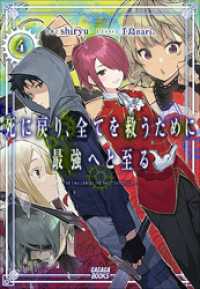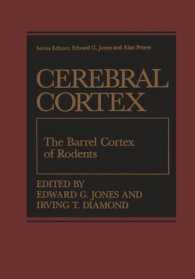Full Description
This book offers an in-depth examination of America's nuclear weapons policy since the end of the Cold War.
Exploring nuclear forces structure, arms control, regional planning and the weapons production complex, the volume identifies competing sets of ideas about nuclear weapons and domestic political constraints on major shifts in policy. It provides a detailed analysis of the complex evolution of policy, the factors affecting policy formulation, competing understandings of the role of nuclear weapons in US national security discourse, and the likely future direction of policy. The book argues that US policy has not proceeded in a linear, rational and internally consistent direction, and that it entered a second post-Cold War phase under President George W. Bush. However, domestic political processes and lack of political and military interest in America's nuclear forces have constrained major shifts in nuclear weapons policy.
This book will be of much interest to students of US foreign policy, nuclear proliferation, strategic studies and IR in general.
Contents
Introduction 1. The policy-making process. Actors involved in nuclear weapons policy. The annual nuclear policy budgetary process 2. American nuclear weapons policy at the end of the Cold War 3. Nuclear weapons policy under George H. W. Bush. Key decisions. Nuclear arms control. Nuclear forces. 'Rogue' states and nuclear planning. The nuclear weapons production complex. Conclusion 4. Nuclear weapons policy under Bill Clinton. Nuclear forces. Nuclear arms control. Russia, 'rogues' and nuclear planning. The nuclear weapons complex. Conclusion 5. Nuclear weapons policy under George W. Bush. Nuclear policy and the 2001 Nuclear Posture Review. Nuclear forces. Nuclear arms control. The nuclear weapons production complex. Conclusion 6. Post-Cold War trends in nuclear weapons policy 7. The influence of ideas on nuclear weapons policy. Three competing 'idea sets' Idea set 1: Managing the drawdown of Cold War nuclear forces Idea set 2: Responding to nuclear proliferation through progress in arms control and disarmament Idea set 3: Responding to nuclear proliferation by re-orienting Cold War nuclear weapons policy to a post-Cold War war-fighting policy Conclusion 8. Domestic politics and nuclear weapons policy. Policy inertia. Political disinterest in nuclear weapons policy. Military disinterest in nuclear weapons policy. Nuclear conservatism and neglect. Conclusion







